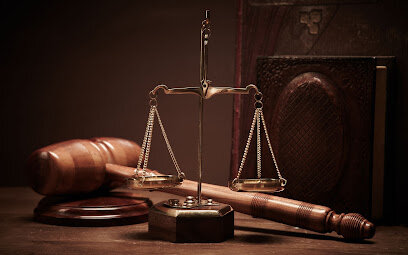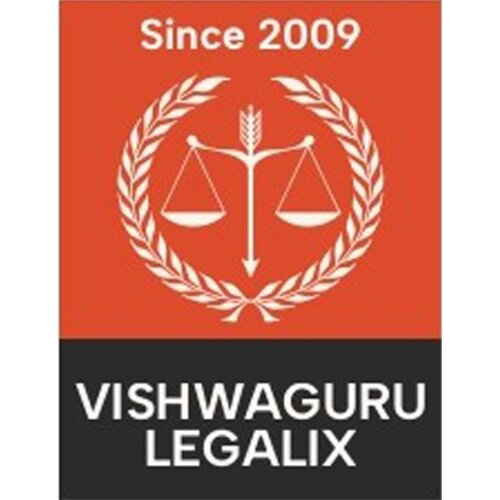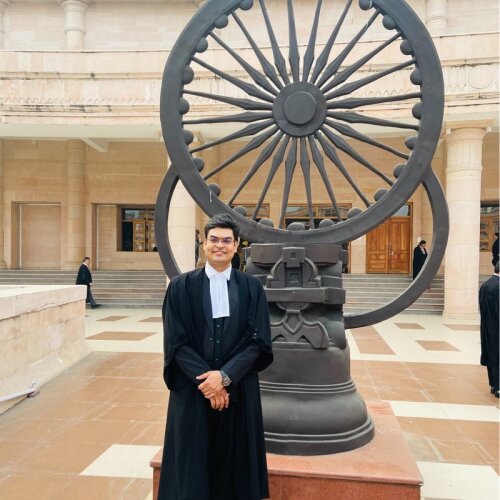Best Civil Rights Lawyers in Lucknow
Share your needs with us, get contacted by law firms.
Free. Takes 2 min.
List of the best lawyers in Lucknow, India
India Civil Rights Legal Articles
Browse our 1 legal article about Civil Rights in India written by expert lawyers.
- Waqf Judgment by the Supreme Court of India: Explained in Simple Words
- On 15 September 2025, the Supreme Court of India delivered an important ruling on the Waqf (Amendment) Act, 2025. This law introduced major changes to how Waqf properties (religious endowments made by Muslims for charity or religious purposes) are governed in India.Several petitions had been filed in the Court, challenging... Read more →
About Civil Rights Law in Lucknow, India
Civil Rights in Lucknow, the capital city of Uttar Pradesh, are governed by a combination of the Indian Constitution, state and central laws, and court rulings. Common civil rights include freedom of speech, religion, peaceful assembly, and the right to equality before the law. These rights are intact for every citizen, regardless of their social, political, or economic status. Any violation of civil rights is considered seriously by law enforcement and the judiciary system.
Why You May Need a Lawyer
While some civil rights violations can be adjudicated by filing a complaint with the appropriate government body, other situations require the services of an experienced attorney. These can include cases related to discrimination on the basis of religion, race, caste or gender, police brutality, unfair arrests or seizures, or denial of rights to assembly, expression, or association. An attorney can help navigate the complexities of the legal system and ensure that all necessary paperwork is filed correctly, increasing your chance of a successful resolution.
Local Laws Overview
Lucknow, being part of Uttar Pradesh, follows laws that are prevalent in the state and the country. The Constitution of India provides the overarching framework for civil rights laws, enshrining fundamental rights such as equality before law, protection from discrimination, freedom of religion, and freedom of expression and assembly. At the state level, the Uttar Pradesh Police act regulates enforcement and preservation of rights and privileges. Any disputes or issues are usually taken up by the state's High Court under Article 226 of the Constitution.
Frequently Asked Questions
What are my fundamental rights as a citizen in Lucknow?
The Constitution of India details six fundamental rights: the right to equality, the right to freedom, the right against exploitation, the right to freedom of religion, cultural and educational rights, and the right to constitutional remedies. These are applicable uniformly across all states, including Uttar Pradesh.
Where can I file a complaint about a civil rights violation?
You can file a complaint directly with the local police station. If you're uncomfortable with that, you can also approach the State Human Rights Commission in Uttar Pradesh. Legal help may often be required to move forward with these processes.
Can I be discriminated against based on my caste or religion?
No. As per the Indian Constitution's Article 15, discrimination against any citizen on grounds of religion, race, caste, sex, or place of birth is prohibited.
Can the police arbitrarily arrest me?
No. As per the Code of Criminal Procedure and the Constitution, police cannot arbitrarily arrest an individual. You are entitled to the right of habeas corpus, which prevents illegal detention or arrest without lawful grounds.
What actions can be taken against violators of civil rights?
Violators can face strict penalties such as fines, imprisonment, or both, depending on the specific nature and severity of the violation. Additionally, public officers or employees guilty of violating civil rights may face disciplinary action, including dismissal.
Additional Resources
Organizations such as the National Human Rights Commission (NHRC), the State Human Rights Commission (Uttar Pradesh), and NGOs such as the Human Rights Law Network offer valuable resources and support. Other resources include local lawyers specializing in civil rights, legal aid societies, and consumer forums.
Next Steps
If you believe your civil rights have been violated, document all the details of the incidents, including dates, times, locations, and involved parties. Afterward, consult a lawyer specialising in civil rights law. You may also consider lodging a formal complaint with the relevant law enforcement authorities or human rights commissions. Remember to keep a copy of all complaints and responses for your records.
Lawzana helps you find the best lawyers and law firms in Lucknow through a curated and pre-screened list of qualified legal professionals. Our platform offers rankings and detailed profiles of attorneys and law firms, allowing you to compare based on practice areas, including Civil Rights, experience, and client feedback.
Each profile includes a description of the firm's areas of practice, client reviews, team members and partners, year of establishment, spoken languages, office locations, contact information, social media presence, and any published articles or resources. Most firms on our platform speak English and are experienced in both local and international legal matters.
Get a quote from top-rated law firms in Lucknow, India — quickly, securely, and without unnecessary hassle.
Disclaimer:
The information provided on this page is for general informational purposes only and does not constitute legal advice. While we strive to ensure the accuracy and relevance of the content, legal information may change over time, and interpretations of the law can vary. You should always consult with a qualified legal professional for advice specific to your situation.
We disclaim all liability for actions taken or not taken based on the content of this page. If you believe any information is incorrect or outdated, please contact us, and we will review and update it where appropriate.















